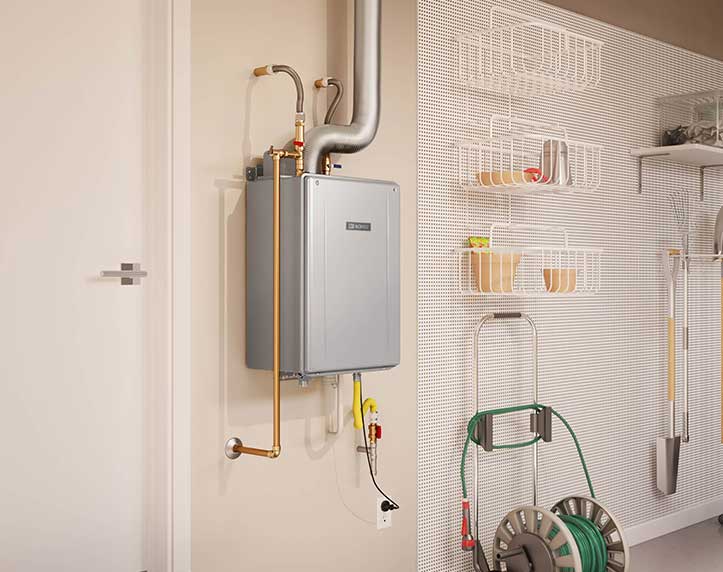
A new water heater is a significant investment, and it’s important to research different products to find a water heater that best fits the needs of your family. One of the first things to consider is whether you should get a tank or tankless water heater installed.
Tankless water heaters are more compact and can heat up water as you use them. Water heaters with tanks are a better option for large families since they can store hot water and reduce energy use if you use a lot of hot water. Tankless don’t produce the standby energy losses associated with storage water heaters, which can save money. Water heating accounts for around 17% of your home’s energy usage, making it the second-highest contributor to your utility costs after your heating and cooling system.
So, If you’re in the market for a new water heater, the best choice for energy savings might be to skip the tank and opt for a tankless water heater. In order to make an informed decision, it helps to know how tankless water heaters work.
Tankless water heaters heat water instantaneously without the use of a storage tank. When a hot water faucet is turned on, cold water flows through a heat exchanger in the unit, and either a natural gas burner or an electric element heats the water. As a result, tankless water heaters deliver a constant supply of hot water. You don’t need to wait for a storage tank to fill up with enough hot water. However, a tankless water heater’s output limits the flow rate.
Typically, tankless water heaters provide hot water at a rate of 2–5 gallons (7.6–15.2 liters) per minute. Gas-fired tankless water heaters produce higher flow rates than electric ones. Sometimes, however, even the largest, gas-fired model cannot supply enough hot water for simultaneous, multiple uses in large households. For example, taking a shower and running the dishwasher at the same time can stretch a tankless water heater to its limit. To overcome this problem, you can install two or more tankless water heaters. You can also install separate tankless water heaters for appliances — such as a clothes washer or dishwasher — that use a lot of hot water in your home. However, additional water heaters will cost more and may not be worth the additional cost.
Other applications for demand water heaters include the following:
Tankless water heaters definitely generate a lot of hype and you may wonder why. Here are the top benefits of tankless water heaters that make them a popular choice among homeowners today:
For homes that use 41 gallons or less of hot water daily, demand water heaters can be 24%–34% more energy-efficient than conventional storage-tank water heaters. They can be 8%–14% more energy efficient for homes that use a lot of hot water — around 86 gallons per day. In some cases, you may be able to achieve even greater energy savings if you install a demand water heater at each hot water outlet.
The initial cost of a tankless water heater is greater than that of a conventional storage water heater, but tankless water heaters will typically last longer and have lower operating and energy costs, which could offset their higher purchase price. Most tankless water heaters have a life expectancy of more than 20 years. They also have easily replaceable parts that may extend their life by many more years. In contrast, storage water heaters last roughly 10 years.
Tank water heaters are around 60 inches tall and 24 inches in diameter, taking up precious storage space. Tankless units measure about 20 inches wide by 28 inches tall by 10 inches deep, or about the size of carry-on luggage. Plus, the unit mounts to the wall, getting it up off the floor. If you own a small house or condo, this size difference could be an added perk to the benefits of a tankless water heater.
The Auger Pros Plumbing experts can help you decide if tankless water heater installation is right for you. We’ll consider all the factors, such as your family’s size and hot water usage, the size of your home, installation limitations, and the payback period of going tankless. Armed with this information, you can make the best decision for your home!